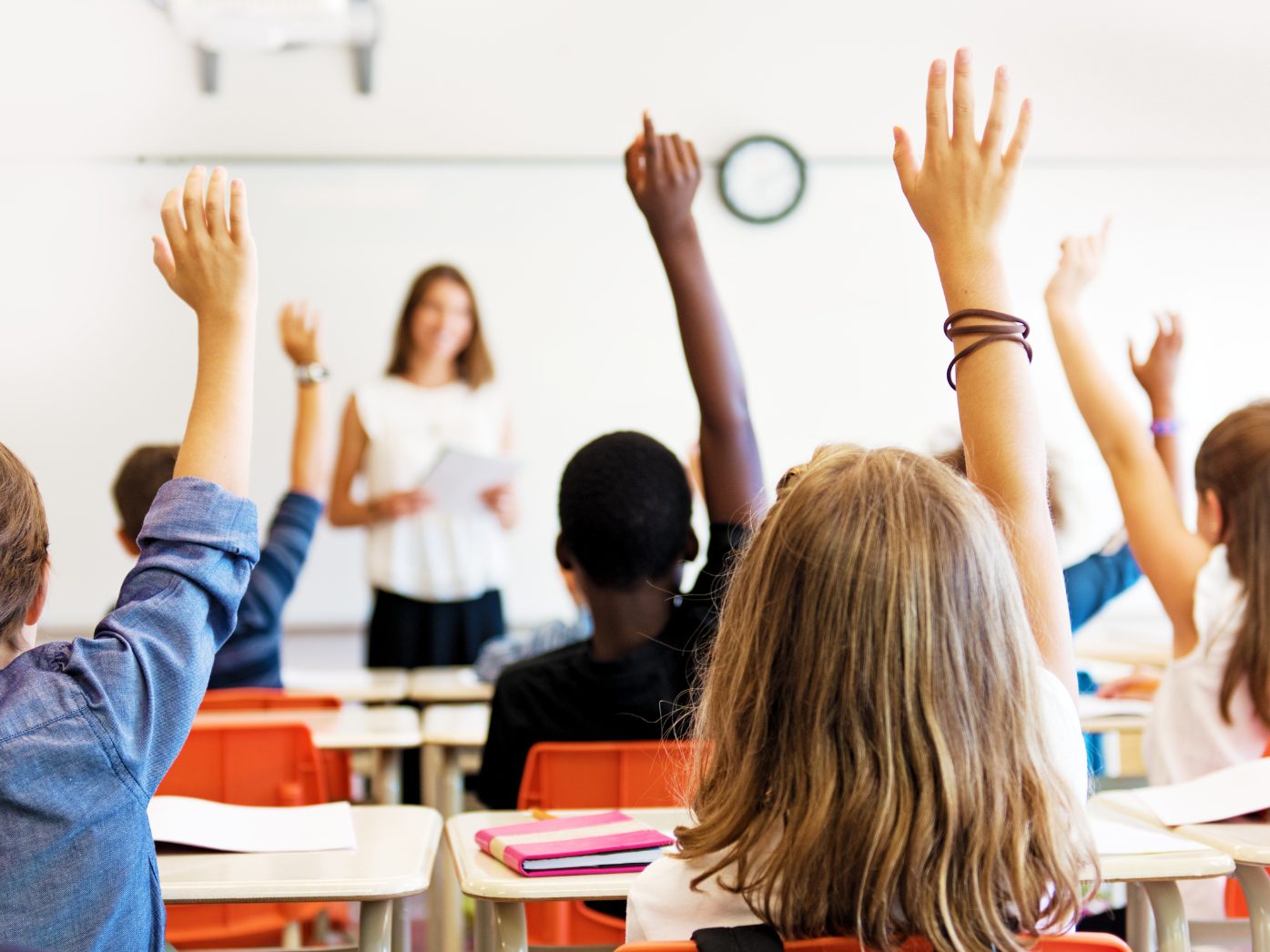Extraordinary Students: A Third in Vienna Have Arabic as Their First Language

Of the approximately 19,700 children and adolescents classified as "extraordinary", a third have Arabic as their first language in all compulsory schools (primary, middle, special, polytechnic school) according to the evaluation of the Education Directorate for the APA. Among school beginners, it is 26 percent.
Through family reunification, 300 new children arrived at Vienna's schools every month for a year and a half, but the numbers have recently decreased again. Since the majority of these were Syrian children and adolescents who had lived in Turkish refugee camps for years and had no school experience, Vienna created its own orientation classes for this group in the spring. There, they learn German for two months before switching to the regular system with a teacher who has language skills in the native language and one who specializes in German as a second language. In addition, their parents are informed about how the school system works in Austria.
Third of Ukrainians in German Support Class
Comparatively low is the number of extraordinary students who speak Ukrainian as their first language. Both across all school levels and among school beginners, it is 5 percent. Although, according to refugee coordinator Andreas Achrainer, around 2,000 people are currently arriving from Ukraine to Austria every month, there is no noticeable increase in Ukrainian students in Viennese schools according to the Education Directorate, at least for the time being. As of October, there were 2,800 children and adolescents at Viennese compulsory schools, a third of whom have extraordinary status and receive German support in a separate class or course.
Majority of "Extraordinary" Born in Austria
Approximately 13 percent of Viennese students, who according to the MIKA-D test cannot follow the lessons due to insufficient German skills and are therefore classified as "extraordinary", stated Turkish as their first language. Among the school beginners (1st grade primary or special school), according to the evaluation, 16 percent of the extraordinary students have Turkish as their first language. 7 percent of all German support class students or 9 percent of those in the 1st grade have Serbian as their first language, 5 percent each have Romanian and 3 or 2 percent have Albanian.
Among school beginners in Vienna at the beginning of the school year, about 45 percent had an extraordinary status. The fact that the majority of these children, according to a response to a query by Vienna's Education Councilor Christoph Wiederkehr (NEOS), were already born in Austria and had on average more than two years of kindergarten attendance, has also caused political discussion. Critics from practice and research, however, argue that the "extraordinary status" does not mean that all these children speak German too poorly for regular lessons. The MIKA-D test is not even capable of measuring this, they say.
Maximum Two Years
A child is classified as an extraordinary student when it has the mental maturity for the respective school level, but cannot yet follow the lessons due to insufficient German skills. For a maximum of two years, extraordinary students are therefore not graded in those subjects in which a positive assessment is not yet possible due to German problems. Since the 2018/19 school year, they also receive up to 20 hours of German lessons in separate German support classes or, if they already speak a little better German, six hours in the German support course. According to a survey, however, a third of the school administrations continue to rely on German support in regular classes, despite the guidelines.
Meanwhile, the Education Directorate also emphasizes the appreciation for the native languages of the children and adolescents. First language instruction is offered in a total of 24 languages at almost 200 schools, reaching around 18,000 students.
(APA/Red)
This article has been automatically translated, read the original article here.





